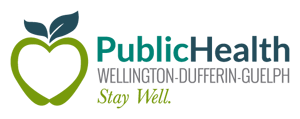Livestock Claims – Livestock Valuer
The Township of East Garafraxa co-ordinates claims under the Ontario Wildlife Damage Compensation Program (an amendment of the Livestock, Poultry and Honey Bee Protection Act, R.S.O. 1990, Chapter L.24).
The purpose of the Program is to provide compensation to eligible applicants whose livestock and/or poultry have been injured or killed as a result of wildlife or whose bee colonies, beehives and/or beehive related equipment has been damaged as a result of wildlife.
The owner must provide a valid Premise ID number and a valid Farm Business Registration number on the Program Application (Valuer's Report) for a claim to be eligible for compensation.
If you are submitting an application under the Ontario Wildlife Damage Compensation Program, you MUST, within 48 hours of discovering the injury or death, notify the Township Administrative Office. Note: if after hours please contact the Municipal Valuer directly.
The Township's Municipal Valuer is: Sara Parkinson (519)-855-4503
For instructions of how to obtain a Premise ID number, please contact the Agriculture Information Contact Centre at 1-877-424-1300 or email ag.info.omafra@ontario.ca.
For instructions of how to obtain a Farm Business Registration Number, please contact Agricorp at 1-888-247-4999 or at contact@agricorp.com to register. Additional information about the Farm Business Registration number can be found at the Farm Business Registration website
Livestock and poultry injured or killed by dogs will be covered not by this regulation but are covered under the Protection of Livestock and Poultry from Dogs Act, R.S.O. 1990, c. L.24.
Please visit the following site for Additional information: Ontario Wildlife Damage Compensation Program


